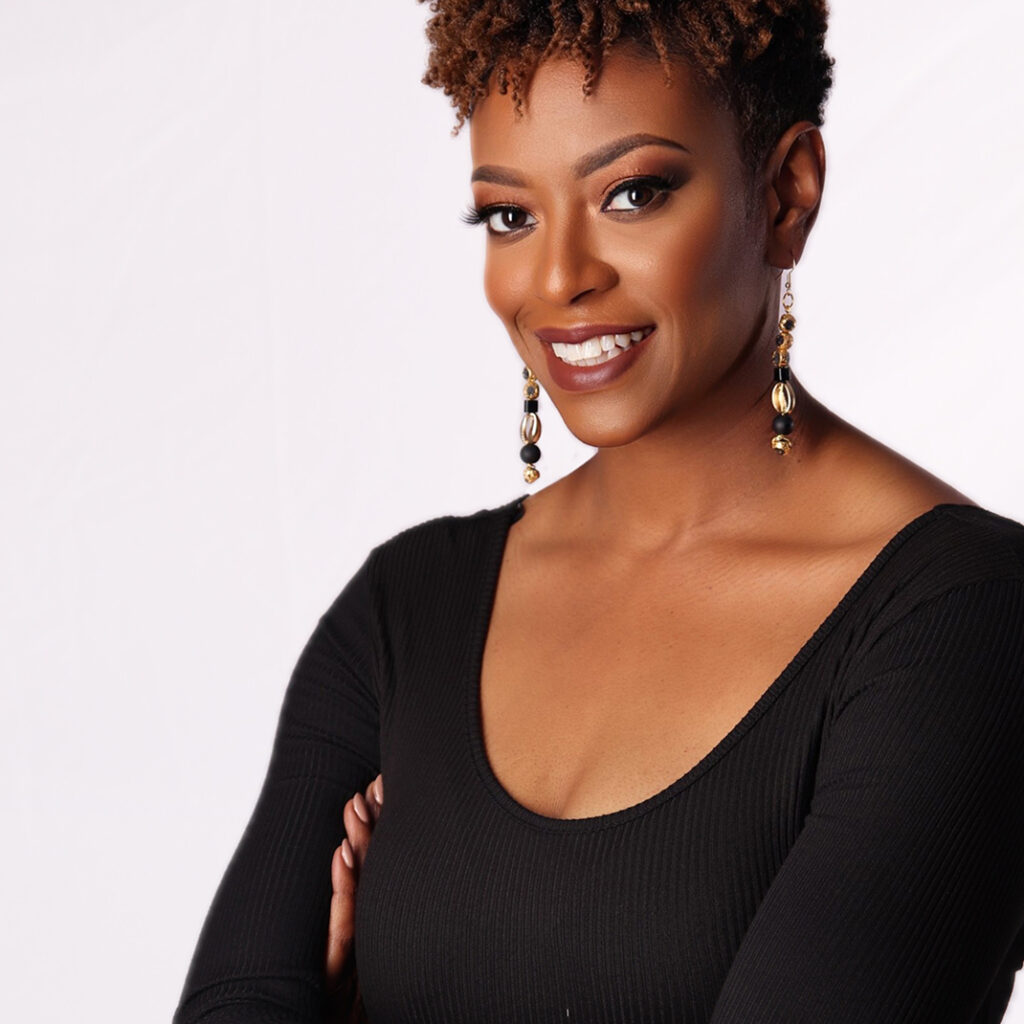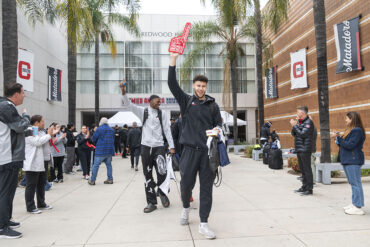
Media Contact: Carmen Ramos Chandler, carmen.chandler@csun.edu, (818) 677-2130
In times of uncertainty, the arts become crucial — whether by providing solace or respite or by giving voice to those who feel they are not being heard, according to Jade C. Huell, an associate professor of communication studies at California State University, Northridge.
“Artists are critical thinkers who also speak in a language of emotion,” said Huell, who teaches in CSUN’s Mike Curb College of Arts, Media, and Communication. “Artists have the ability to appeal to people, their experiences and their sensibilities on multiple levels at once. Art is intellectual by nature. You experience something but you also learn something about yourself and about other people.
“There is no better time for us to be doing that very activity, of being reflective, of evaluating the circumstances around us, of thinking through the lens of someone else, of being empathetic creatures than right now, when everything seems to be up in the air or turning upside down, when we need to understand the consequences of our actions and the consequences of other people’s actions,” Huell said.
“One thing that art does that other things don’t do is shut you up,” she continued. “It asks you to sit down, be vigilant, use your senses. Right now, we need to be listening to others and need to be critical thinkers and critical actors in the world we live in. We need to learn how to be quiet more, to talk less and listen more. Art trains us to do that work.”
But that act of teaching their audiences to think critically and be empathetic also puts artists in danger, Huell said.

“If you look at history, artists are among the ones they come for first,” she said. “Just like they come for the scientists, the professors, the media and the other truth tellers — those people who have the power to reach into a community and can disseminate information in a clear and truthful manner. These are the people who are incarcerated, relocated, disappeared or die.”
Despite those risks, Huell said, artists and their works persist and resonate even centuries later, like William Shakespeare.
“The best artists have something about them that speaks to a kind of universal experience,” she said. “Anyone can look at their work and they may see something different, but they definitely see something.”
Artists use a variety of mediums, from painting to music and performance. Regardless of the medium, Huell said, they often provide a way through which people feel their experiences, their concerns, their voices can be seen or heard.
“There’s fine art, but there is also art that is for the people by the people,” she said. “This is the art that arises out of necessity, the art that comes from communities that need a voice. They need to hear themselves, even if it’s only to themselves. We’re a lot more likely to believe what’s possible in the world if it comes out of the mouths of people that we can identify with. Seeing yourself represented is super important.”
Huell noted that people always seem to wonder why art seems to endure and resonate with audiences today.
“I think of art as a spiritual experience,” she said. “We ask that question a lot when it comes to literary works or other forms of art. We ask it less so when to comes to things like religion. How has religion — whether its Islam, Christianity or Judaism — lasted so long? How is it still relevant in the lives of people today? I think there is an imperative in the human spirit that requires an acknowledgement of what came before. So, regardless of the present time, we are going to continue to create ways to re-experience the worlds of those who came before us. To find ways to make sense of something you don’t quite understand. Religion does that, but so does art.”
In turbulent and uncertain times, that spiritual connection becomes a very important tool trying to explain and understand what is happening around us, she said.
“But there are going to be backlashes to good performances, performances that challenge the norm, that challenge the social structure,” Huell said. “We’re beginning to see it now.
“To borrow from Dr. Martin Luther King Jr., the arc of the moral universe bends towards justice, but there are a load of people trying to bend it back the other way at all times,” she said. “Artists, performers, storytellers, critical thinkers, critical scholars and justice seekers of all types are always in the resistance to that backlash. So, we can’t let up with our art. That’s why art is so important. Otherwise, that arc would be bending back in the other direction. And we can’t let that happen.”




Comments are closed.